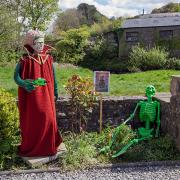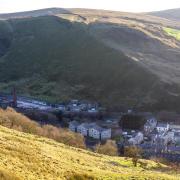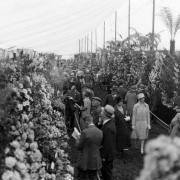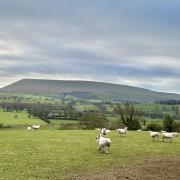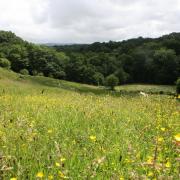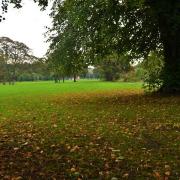The Hewitson Diaries reveal much about a Victorian life and times in Lancashire, as David Upton discovered
Anthony Hewitson was a Victorian journalist who turned newspapers into big business in late 19th century Preston.
Over the same period he also kept diaries, and it is these that have been abridged and turned into a 70-minute playlet, for Past In The Present Productions, by playwright and director Derek Martin. It was first performed, in Preston, to mark the 100th anniversary of Hewitson’s death.
Revived, 10 years later, it attracted a capacity audience to the intimate Moor Space theatre at The Dukes in Lancaster. The subject matter, and its enthusiastic reception here, suggests a work that deserves wider performance.
John Hickey, as Hewitson, breathes life into the character, reading extracts from the man’s journals, with incidental piano support from Malcolm Sim. Above them, in suitable ‘magic lantern’ projection style, a timeline from 1865 to 1912 plays out, setting the author’s later life in its historical context.
It’s low-fidelity theatre, but highly entertaining, often amusing, and occasionally quite moving. Hewitson picked up his diarist’s pen shortly after the loss of two of his young children, and was to go on to record further such tragedy. But he also recounted his robust opinions of his business contemporaries, local municipal bigwigs, and – in particular – the scandalous behaviour of one or two men of the cloth.
When he also recorded such strong views in his newspaper column he ended up being burned, in effigy, in Garstang!
The diaries span the moments when Hewitson attended a Preston soiree in the company of another Victorian chronicler - Charles Dickens reading extracts from Pickwick - all the way to him witnessing one of the first flying machines, above Morecambe promenade. He was even once assaulted, with a rolled-up copy of his own paper, in the street.
Naturally, as a journalist, he enjoyed a drink (or several) but was not above criticising others for inebriation. And among his other recurring complaints was the high turnover, in domestic staff, that his household suffered. As a notoriously poor payer of his own newspaper employees, the solution probably lay in his own pocket . . .
The ensuing Q&A, in the company of Margaret Dickinson and Dr Andrew Hobbs adds a whole new dimension to the evening. The former describes how she unearthed her family connection to Hewitson, and brought the diaries ‘home’ from Australia; while the latter, a one-time Preston journalist himself and now lecturer at Uclan, turned them into the book from which the play is adapted.
Hewitson would approve - still making the news, 150 years later.












